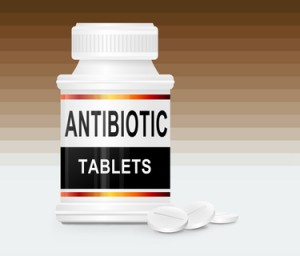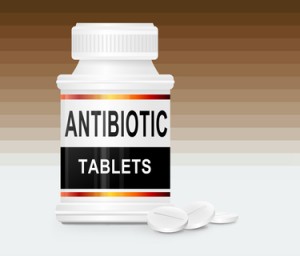 Dr. Michael Schmidt provides information about the overuse of antibiotics and antibiotic alternatives in this article.
Dr. Michael Schmidt provides information about the overuse of antibiotics and antibiotic alternatives in this article.
For decades, antibiotics have been the cornerstone of treatment for bacterial infections.
Antibiotics have saved many lives during this time.
However, doctors have come to rely too heavily on these miracle drugs and the overuse of antibiotics has led to serious problems.
For all of the potential benefits of antibiotics, a growing list of adverse health consequences has emerged because of overuse.
A sample of these is listed below:
- Children with chronic earaches who take many series of antibiotics experience 2-6 times more recurrent ear infections.
- Antibiotic overuse can upset intestinal integrity.
- Antibiotic overuse can suppress immune function.
Factors That Lower Immunity
We know that there are many factors that lower immunity and thus make the body more susceptible to infection. These include:
- Nutrition: Low vitamin C and zinc lead to sluggish immune response.
- Diet: Excess sugar consumption slows the ability of white blood cells to engulf and destroy bacteria.
- Lifestyle: Sedentary people tend to have more sluggish immune systems than active people.
- Environment: Solvent chemicals and heavy metals such as lead increase susceptibility to infection.
- Psychological: People under stress are more likely to have frequent infections, while those with better coping skills are less sensitive to the effects of stress on their immune systems.
Are There Antibiotic Alternatives That Can Help?
For many common ailments, scientific research is confirming time-honored traditions.
- Ear infections: The vast majority of children with recurrent ear infections improved after removing food allergens such as dairy from their diets. Garlic mullein oil drops can help ease the pain.
- Bladder infections: Unsweetened cranberry juice clears bacteria from the bladder. Yogurt and Acidophilus probiotics are also helpful.
- Respiratory infections: A sauna once a week can reduce respiratory problems by one half.
- Intestinal infections: Homeopathic medicine has been helpful in reducing diarrhea in children.
Live Healthfully and Be Informed
Remember, antibiotics can save lives and reduce suffering.
They are vital components of the healing arsenal.
However, they must be used wisely.
Your goal should be to optimize the health of your family to reduce the need for drug intervention and to make wise, informed decisions should drug intervention become necessary.
Are Antibiotics Being Overused in Your Care?
Does your doctor:
- Prescribe antibiotics over the phone?
- Refill a prescription without an examination?
- Prescribe without taking a blood count?
- Neglect to ask about diet, nutrition or lifestyle factors?
- Prescribe after only a cursory examination?
- Write off or ignore concerns about negative side effects?
- Remark that antibiotics are harmless?
- Try to intimidate or frighten you into following orders?
- Prescribe several courses of antibiotics when there is no improvement?
- Prescribe antibiotics when illness is viral such as a cold?
- Seem overworked or overbooked?
- Cut your visit short by handing you a prescription?
If you answered “yes” to more than five items, you or someone in your family may be receiving antibiotics needlessly.
Ask your doctor for a full re-evaluation or seek another opinion.
Dr. Schmidt’s books Beyond Antibiotics and Healing Childhood Ear Infections can both be found on Amazon.
Still Looking for Answers?
Visit the Epidemic Answers Provider Directory to find a practitioner near you.
Related Pages
Ear Infection Treatment and Prevention
Gut Dysbiosis and Immune Function
References
Aguilera, M., et al. Antibiotic-induced dysbiosis alters host-bacterial interactions and leads to colonic sensory and motor changes in mice. Gut Microbes. 2015;6(1):10-23.
Atladóttir, H.Ó., et al. Autism after infection, febrile episodes, and antibiotic use during pregnancy: an exploratory study. Pediatrics. 2012 Dec;130(6):e1447-54.
Bora, S.A., et al. Regulation of vitamin D metabolism following disruption of the microbiota using broad spectrum antibiotics. J Nutr Biochem. 2018 Jun;56:65-73.
Borre, Y.E., et al. Microbiota and neurodevelopmental windows: implications for brain disorders. Trends Mol Med. 2014 Sep;20(9):509-18.
de Goffau, et al. Fecal microbiota composition differs between children with beta-cell autoimmunity and those without. Diabetes. 2013;62(4):1238-44.
Grizotte-Lake, M., et al. Suppress Intestinal Retinoic Acid to Regulate Interleukin-22 Activity and Prevent Microbial Dysbiosis Immunity. 2018 Dec 18;49(6):1103-1115.e6.
Hamad, A.F., et al. Prenatal antibiotics exposure and the risk of autism spectrum disorders: A population-based cohort study. PLoS One. 2019 Aug 29;14(8):e0221921.
Kang, D.W., et al. Microbiota Transfer Therapy alters gut ecosystem and improves gastrointestinal and autism symptoms: an open-label study. Microbiome. 2017 Jan 23;5(1):10.
Nemechek, P., et al. Autism Spectrum Disorder Symptoms Improve with Combination Therapy Directed at Improving Gut Microbiota and Reducing Inflammation. Applied Psychiatry. 2020 Jul; (1)1.
Ozkul, C., et al. A single early-in-life antibiotic course increases susceptibility to DSS-induced colitis. Genome Med. 2020;12(1):65.
Warner, B.B. The contribution of the gut microbiome to neurodevelopment and neuropsychiatric disorders. Pediatr Res. 2019 Jan;85(2):216-224.
